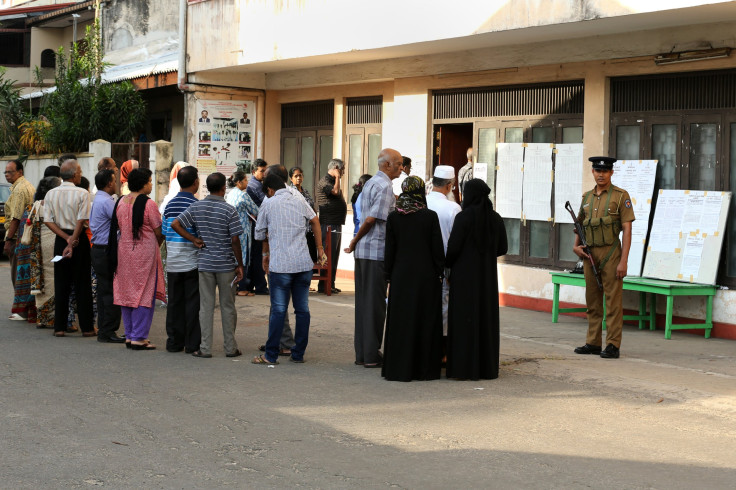Sri Lanka Goes To Polls As Former President Rajapaksa Plans Comeback

Sri Lanka began voting Monday in general elections that are being seen as a referendum on former president Mahinda Rajapaksa’s comeback bid. Rajapaksa, who had abolished the two-term limit for president during his 10-year term, lost his bid for a third term to former health minister Maithripala Sirisena in January’s snap elections.
Nearly 15 million voters are eligible to vote in the latest elections for the country’s 225-member parliament. The final count is due Tuesday. Rajapaksa is now seeking to return as prime minister in the Sirisena-led government. The latter, however, has reportedly vowed not to make him the prime minister even if his coalition wins the parliamentary elections.
“I told him Tamil and Muslim people of this country will not vote for you,” Sirisena reportedly said last month, after Rajapaksa was formally accepted as a candidate. “Young people will not vote for you due to the big wrongs you committed during your period, your feudal behavior and nepotism.”
Rajapaksa, who was first elected the island nation’s president in 2005, won a second term in 2010, riding on a wave of popularity after being credited for ending Sri Lanka’s nearly three-decade-long civil war with militants of the Liberation Tigers of Tamil Eelam (LTTE) -- a separatist group belonging to the country’s Tamil minority. However, despite winning 58 percent of the votes cast in 2010, his popularity waned in the following years over allegations of corruption, authoritarianism and spreading a dynastic rule.
His government has also been accused of committing war crimes during the civil war. Up to 100,000 people, including a huge number of civilians, are believed to have died in the conflict. Last year, the United Nations said it would investigate incidents of alleged war crimes but Rajapaksa refused to cooperate.
No single party is expected to win a majority in the ongoing polls. According to a recent survey, conducted by the Centre for Policy Alternatives -- a Colombo-based nonprofit -- opinion over who should be the country’s next prime minister is divided. Nearly 36 percent of the Sinhalese Buddhists surveyed favored Rajapaksa, while about 32 percent expressed support for Ranil Wickremesinghe -- the current prime minister who is aligned with Sirisena.
© Copyright IBTimes 2025. All rights reserved.






















